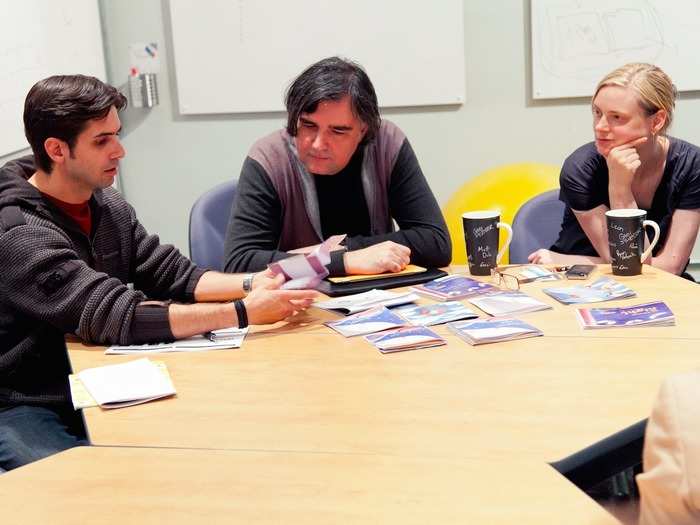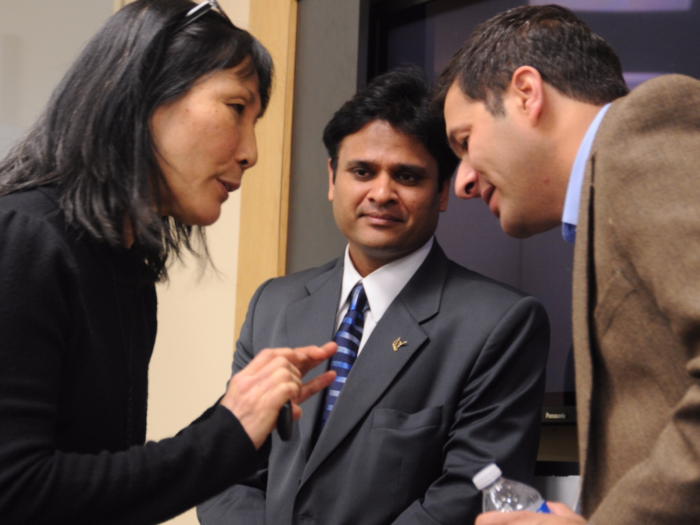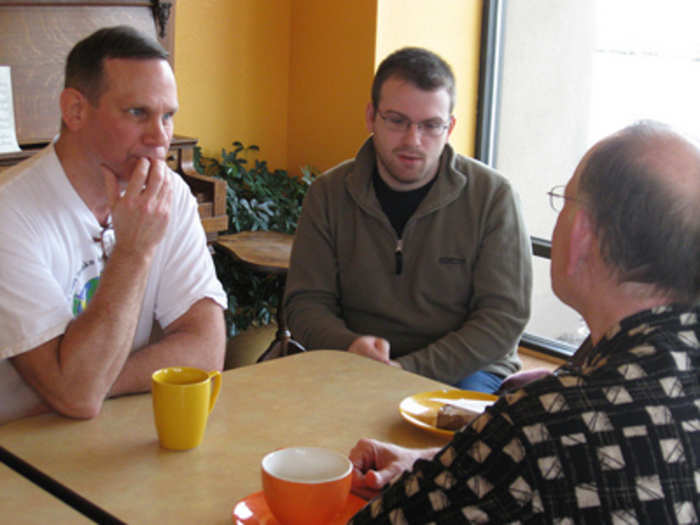7 reasons why your work meetings are a waste of time - and how to fix them
1. They have no purpose or structure.

2. The moderator is stretched too thin.

You can't properly manage the meeting if you're trying to do everything at once.
Pryce-Jones suggests having a "wingman" who is responsible for the little things, like bringing refreshments and making sure the projector is working, as well as ensuring the team sticks to the agenda. Ask them to let you know if you're falling behind schedule or if the meeting is no longer constructive.
3. The moderator isn't the best person to run all parts of it.

If you know that a particular team member knows more about a topic of discussion than you do, let them lead that part of the meeting to keep things moving quickly. It keeps you from stumbling and keeps your team alert and ready to speak.
4. There are no ground rules for conduct.

Pryce-Jones says that frustration arises when employees hold back their feelings in meetings because they're afraid of stepping on each other's toes.
Avoid this frustration by establishing a code of conduct. Set a time limit on the meeting and consider allotting set portions of time each employee will speak. Ask the wingman to be responsible for letting the team members know if they are being too vague or verbose, and don't let politeness interfere with getting things done.
"You've got to have a little bit of tension, because that's where the real value is added," Pryce-Jones says.
5. The meetings aren't relevant to everyone in attendance.

If employees are constantly sneaking emails on their smartphones or tablets rather than writing down relevant notes, "that is a strong signal to me that the content of the meeting is not correct," Pryce-Jones says.
Likewise, if you find that your meetings have become a series of "submeetings" in which you're only fully engaging one or two employees at a time while everyone else checks their phone or daydreams, then you're wasting time. Keep meetings relevant for everyone involved by utilizing other forms of communication that don't require getting the team together, whether that be through one-on-one meetings or business group messaging services like Slack.
6. There are no followups.

Communication is key to successful meetings, especially if you're experimenting with finding the ideal format for your team. Keep track of your meetings, and don't rely on just your own thoughts. If you tried a time limit, ask your employees if they felt that the meeting went more smoothly or got cut short. Get a sense of whether or not your team thinks the purpose you set out to achieve at the beginning was actually fulfilled. Be open to suggestions on how the meeting can be improved.
7. They're getting stale.

Regular meetings can become repetitive and boring and therefore not as productive. Sometimes all that's required to bring energy and good ideas back to the table is a change of scenery, Pryce-Jones says. Try going to a nearby cafe or even a bar and treat your team to coffee or beer.
As always, ask your team if they enjoyed the change of pace. If they enjoyed it but didn't find it constructive, try something else the next time. It's never a complete waste of time, says Pryce-Jones, since "a bit of socializing is never going to hurt things."
Popular Right Now
Popular Keywords
Advertisement